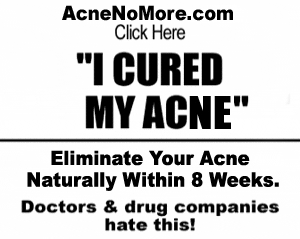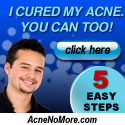Over The Counter Topical Medications For Acne
Over-the-Counter Topical Medications For Acne
In the early stage of the ongoing war with acne, most people go to a pharmacy to buy an over-the-counter medication. There are so many treatments available for acne, that it can be a complicated decision. Advice from friends is not a reliable method for making a choice, because what worked for 1 person may not work for another. And advertising advice? Who trusts that?
You can make a more informed choice about which product to try just by knowing about the active ingredients in the various acne medications.
Benzoyl Peroxide
1 of the most popular ingredients in acne medications, benzoyl peroxide is available in gels and ointments. It kills the bacteria that causes pimples and helps remove dead skin cells that build up on the surface of the skin. These dead skin cells, when combined with sebum (oil), create blackheads and whiteheads. Dry skin is the only side effect, which can be minimized with less frequent application. It has a bleaching effect, so avoid hair and clothing when applying it.
Salicylic Acid
This is a popular acne ingredient which clears up dead skin cells that clog the pores. Continued use even after the skin has cleared up is necessary to avoid future acne outbreaks. Again, the side effect is dry, irritated skin.
Resorcinol
Resorcinol causes the top layer of skin to peel, which removes the dead skin cells that clog pores. It is often combined with sulphur.
Sulphur
Because of a strong, unpleasant odor, sulphur is usually combined with other ingredients. How it works is unknown, but it’s been used effectively for decades. Sulphur is often combined with salicylate acid and benzoyl peroxide.
Products
Of all these ingredients, benzoyl peroxide is probably the most versatile. It can be made into cleansing liquids, bars, gels, lotions and cream, all of which are applied directly to the skin. Cleansing products are usually used once or twice daily, with creams and lotions applied as needed. They are most effective when rubbed on the area surrounding the acne, as well as on the pimples themselves.
It’s always a good idea to discuss acne with a doctor before self-treating with any of these medications. Even though acne is a fairly harmless condition, a doctor can often offer better suggestions and explain the best way to handle your condition based on your particular kind of acne.





